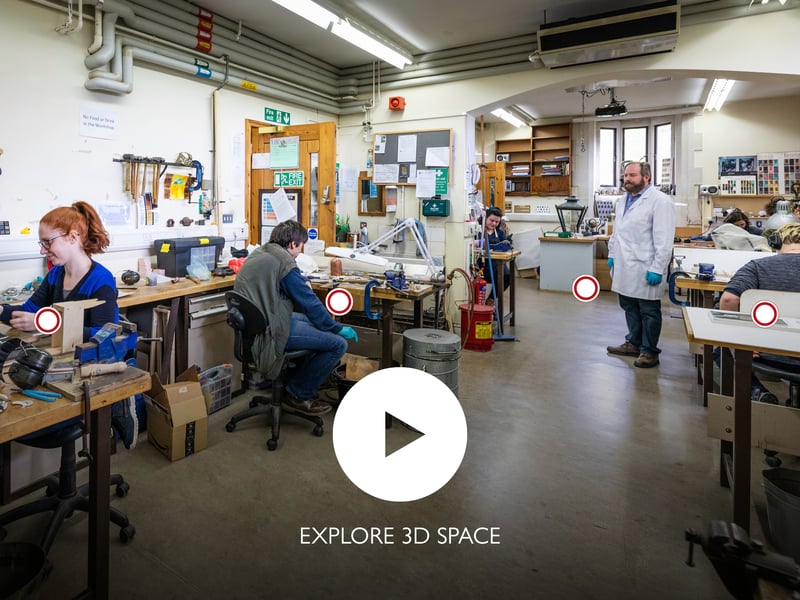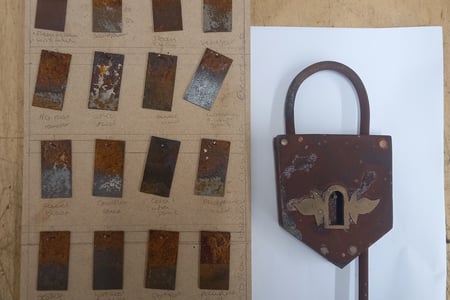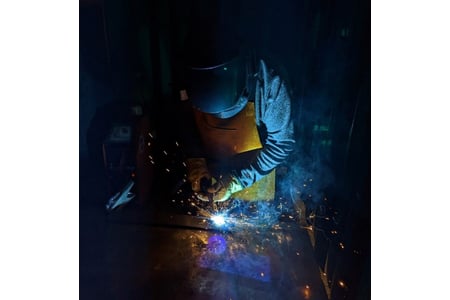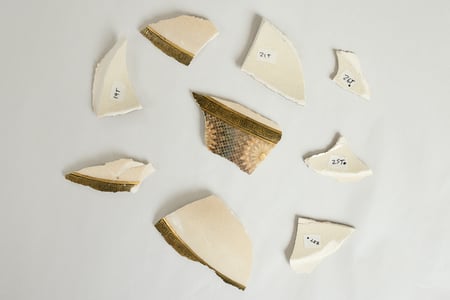Conservators, what piece of career advice would you give yourself if you went back five years?
"Follow your own interest and build a career that matches your skills! Whatever they are!" – Lorna
What's your favourite thing about what you do?
"Peace" - Sujin, Graduate Diploma Conservation Studies
"Self-rewarding and coffee breaks" - Cassandra, Graduate Diploma Conservation Studies
"Satisfaction" - Rick, Graduate Diploma Conservation Studies
"Give an object new life" - Rose, Graduate Diploma Conservation Studies
"The hard work of my students!" - Lorna, Subject Leader Ceramics Conservation
"Agree with everything above" - Andri, MA Conservation Studies
"The amazing combination of craft skills, science, great object and great people!" - Eric, Subject Leader, Metals Conservation & Science Liaison
What tips would you give conservation students looking for industry work after graduating?
"Get in touch with the kinds of places you'd like to work now and let them know you are interested. Attend online events for students and recent grads such as ICON's event Students and graduates: Resilience in the current climate." – Eric
What has been your favourite object to conserve?
"The engine room clock of the USS Monitor and all the other marine archaeological metals at the USS Monitor Lab." - Eric
What steps do you take to respectfully conserve a very damaged object?
"Careful handling, slow movements, good support at all times, assume its more fragile that you imagine it to be and evaluate carefully before starting treatment." - Eric
Having worked on many pieces of Boulle furniture, it’s always been a problem of getting brass inlay to adhere to timber for any great length of time, as the daily movement of timber and brass are slightly different. I’ve heard in the past that French makers used animal glue, but that they also rubbed garlic on the brass surface to help adhesion. Could that be true?
"There are lots of traditional practices in conservation and restoration like using garlic on brass Boulle marquetry that may not always be fully understood, though they are still recommended by many today. I’m not a specialist Furniture conservator and others may know more but thinking from a scientific point of view, if the garlic does help with adhesion it must be modifying the brass, the glue, or the interaction of the two. One might think the garlic could be etching the brass slightly to provide a better keying surface, but as most garlic is only slightly acidic in the range of pH 6, it is likely not acidic enough to significantly etch the brass. It’s possible the chemistry of the garlic juices could serve as a ‘surfactant’ to help ‘wet’ the surface of the brass with the glue and promote adhesion, or the sulphur-based compounds in garlic such as Allicin may have another effect on the glue. A former West Dean student started a blog about this topic. I’m keen to find out the results of the tensile tests that were done and investigate whether the garlic really makes a difference in adhering Boulle work." – Eric
As a student, I would like to know more about the employment and jobs selection of a conservation major.
"That’s a good question with lots of answers! There are many potential options for conservators to work in both the public and private sector: Museums and historic houses large and small, local and national heritage agencies and governments, Colleges and Universities and of course private practice, from sole proprietors to larger conservation firms. Availability of jobs in any of these areas varies from time to time and with location, but though these are challenging times, there are still opportunities out there." - Eric
I wonder if I don’t have an art major or art history background, can I take ceramic conservation course?
"Yes! We look for a set of skills to do with having a natural eye for colour, good 3-D perception, good haptic skills, an enquiring mind with an ability to identify and solve problems. Our graduates and students come from many backgrounds." - Lorna
What would be your dream object to work on and why?
"Antikythera mechanism! metals, corrosion, complex object and marine context." - Eric




